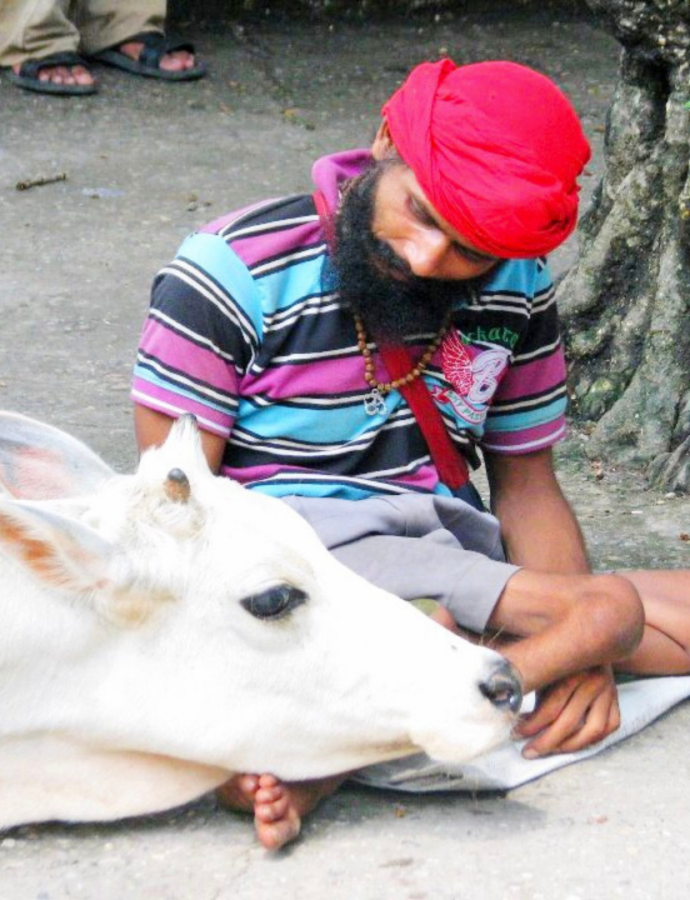
The yoga tradition believes that your soul has distinct desires. Our soul uses these desires to fulfill its unique potential and lead the individual toward making their most meaningful and beneficial contribution to the world. Our soul desires to have purpose, or the drive to become who we are meant to be. The soul also desires for the means to prosper in this world- which means having proper health, financial means, and health to allow us to fulfill our purpose.
We cannot avoid experiencing desire in our daily lives. Some desires create pain and frustration, while other desires lead to change and growth. Rather than avoid desire altogether, we can learn to become more mindful of those desires that are helpful and necessary for our growth from the desires which are not.
Desire Requires Change
Some desires require us to act, be, feel, think, and achieve differently. In other words, we must change in order to fulfill them. Some people would rather be comfortable than go through the process of change. We tend to choose the certainty of where we’ve been over the uncertainty of where we want to go.
To create the results we want, we must learn to choose the discomfort of change over the comfort of what is known to us. We can use the practice of mindfulness to help us overcome the challenges associated with change and to help us achieve our desired results.
What Is Mindfulness?
The term mindfulness can often be overused and misunderstood. In the most basic way, mindfulness means to bring attention to the present moment without judgment and to be able to consciously decide how we wish to respond.
Mindfulness is a form of metacognition- which means you are aware of and understand your own thought processes. We need to be mindful of our current thought patterns before we can create new ones.
There are three main components of mindfulness which are:
- We must be cognizant of the present moment.
- We must be cognizant of how we experience the present moment.
- Mindfulness also requires us to remember something to bring to the present moment.
If we are going to change the future we have to change the present. If we are going to change the present we have to be more aware. When we are aware, we have to remember things to bring to our present moment awareness. This remembering requires us to hold something in our mind that will point us in the direction of our desire.
Putting Mindfulness Into Practice
One of my desires for 2022 is to start teaching a weekly community yoga class from our guest house.
When I sit down to plan, I have to limit my distractions so I can fully focus on all the things I need to do to make this class happen.
Then, as I plan, I must be aware of how I am feeling. Sometimes I feel fearful, unmotivated, or discouraged. I have to be aware of the thoughts that pop up that make me feel this way. If I feel discouraged, usually it’s because I am thinking I am not good enough. If I am feeling unmotivated, I am probably thinking “I would rather be doing___.” If I am feeling fearful, I am likely thinking about failure.
Once I am aware of how I am feeling in the present moment, I have to remember to remind myself that these thoughts are popping up as a way to keep me safe. It’s far less scary to stay in my comfort zone than it is to put myself out there and do something different. I also have to remember that these are just thoughts and to keep going despite them.
I have to be aware of the uncomfortable emotions that arise- such as fear, doubt, and insecurity- when doing something new. I have to remember that these emotions are simply a result of my thoughts.
I also have to remember why I want to start this class in the first place. Reminding myself of my desire will help to generate feelings such as will, focus, and intentionality. These feelings will fuel the actions I need to take to achieve my desired result.
Mindful Thoughts-Emotions-Actions
Cognitive-behavioral therapy looks at three different fields- our thoughts, emotions/moods, actions. There’s this idea that these three fields act on one another. What we do affects how we feel. How we feel affects the way we think. What we think affects what we feel and what we do. What we feel affects what we do and what we think.
If we feel good, we are more likely to be motivated, self-confident, independent, less vulnerable, and less at the mercy of other people’s opinions. If we feel sad, lonely, or isolated, then any kind of change in our circumstance that adds to the weight of those feelings can lead to actions that will reflect that deepening into sadness.
If I feel self-doubt and no one shows up to my yoga class, then I am more likely to stop offering classes which further perpetuates my self-doubt. However, if I feel determined and no one shows up to my yoga class, then I am more likely to search for ways to advertise my class to get people to come rather than give up.
Generate Mindful Emotions
Sometimes we rely too heavily on our circumstances to determine our results. The problem with waiting for our circumstances to direct our behavior is that they are unreliable. Circumstances constantly change and we have no control over them.
One thing we do have control over is our emotions. We can consciously create our self-feeling, rather than wait for the right circumstances to do it for us.
So how can we elevate how we feel to drive us to take the right actions that lead toward our desires?
We can do this by identifying three words that relate to distinct feelings that will allow us to most effectively and successfully overcome future challenges in the present moment. We will need to remember these three feelings when challenges arise. We can use these sensations to drive the actions needed to continue to move toward our desire rather than be defeated by obstacles that pop up along the way.
For me, I want to rely on the feelings of excitement, inspiration, and determination when moving toward my desire of starting a weekly yoga class. I will need to remember these feelings to override other emotions, such as doubt or fear.
If thoughts and actions also influence emotions, then I can reflect on thoughts that make me feel inspired and excited about starting a yoga class. I can think about the actions that a determined person would take if they were trying to achieve the same desire.
Go Get Em'
According to Rod Stryker, “Yoga’s ultimate intent is to achieve something far deeper and more meaningful than just a better body or less stress and tension. Its ultimate aim is to help you hear your soul’s call so that you can be consistently guided to make the best decisions — the ones that serve your highest state of well being.”
We can affect a different future and fulfill our desires by creating a different present. We can draw upon elevated feelings in the present moment that will lead us to where we wish to go in the future. By creating a different present consistently enough, we can create and shape a different outcome- one that will lead us to the fulfillment of our innermost desires.
Remember it’s not a matter of going directly from point a to point z. It’s about creating moment-to-moment shifts that culminate and create the change we want. In the process of doing so, we begin to act in such a way that leads toward living a more meaningful and purposeful life.
Contemplation Points:
- What is something you desire to accomplish in 2022?
- What are the most elevated, inspiring, feeling states that could move you through any challenge and will lead you to where you wish to be at the end of this year?
- What feelings and sensations will help you overcome the patterns that inhibit you from acting in your own best interest?







